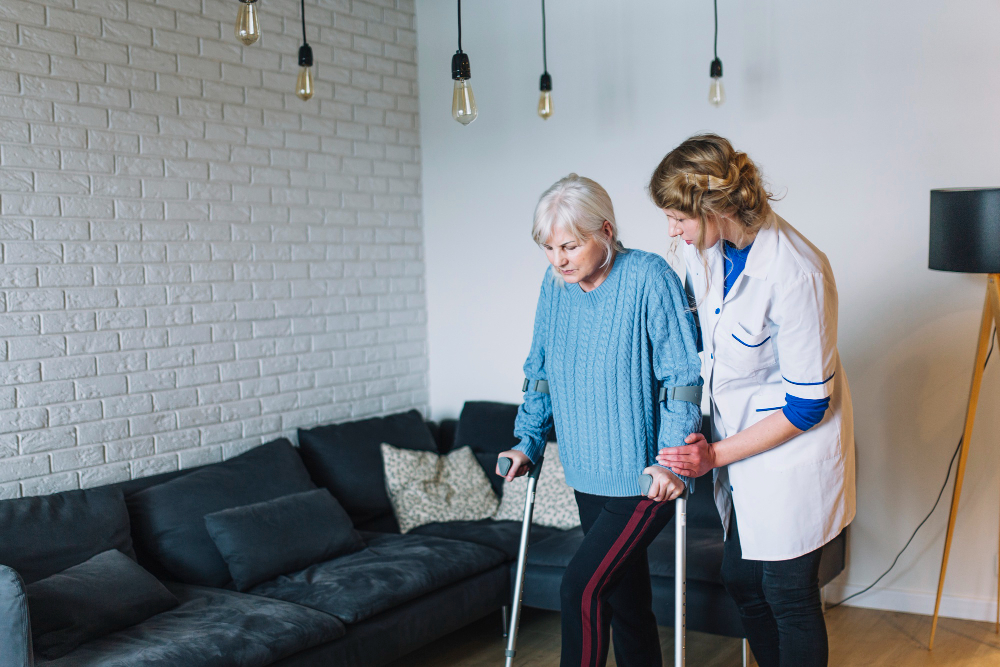Home Care Fremont is a crucial resource for families managing the complexities of Alzheimer’s and dementia care. When caring for a loved one with these conditions, the right strategies and knowledge can make a significant difference in their quality of life. Alzheimer’s and dementia affect not only memory but also thinking, behavior, and physical abilities, making home care both challenging and rewarding. Here, we provide an in-depth guide covering essential care tips to help create a safe, comfortable, and supportive environment.
Table of Contents:
- Understanding Alzheimer’s and Dementia
- Creating a Safe Environment
- Managing Daily Routines
- Communicating Effectively
- Engaging in Therapeutic Activities
- Nutrition and Hydration Tips
- Importance of Self-Care for Caregivers
- When to Seek Professional Help
Understanding Alzheimer’s and Dementia
Alzheimer’s disease and dementia are progressive neurological conditions that impact cognitive functions, memory, and behavior. Over time, these impairments can become severe, requiring personalized and vigilant care. Alzheimer’s is the most common type of dementia, marked by memory loss, confusion, and changes in behavior. Understanding the specific symptoms and needs of the individual can help in tailoring the right approach to care.
Creating a Safe Environment
Why Safety is Essential
Ensuring safety is a foundational element in home care for Alzheimer’s and dementia patients. As cognitive functions decline, patients may face challenges with spatial awareness, mobility, and memory, increasing the risk of falls, wandering, and accidents.
Steps to Enhance Safety
- Remove Hazards: Clear clutter, secure loose rugs, and install non-slip mats in bathrooms and kitchens.
- Install Grab Bars and Rails: Particularly in bathrooms and along hallways, where falls are common.
- Use Locks on Doors and Cabinets: Locking up cleaning supplies, medications, and sharp objects can prevent potential accidents.
- Label Rooms and Items: Clearly label important areas, such as the bathroom and bedroom, to aid recognition.
- Adjust Lighting: Ensure all rooms have adequate lighting, especially at night, to reduce the risk of disorientation and accidents.
Managing Daily Routines
The Importance of Consistency
For Alzheimer’s and dementia patients, maintaining a predictable routine can offer a sense of familiarity, reducing anxiety and confusion. Daily routines create structure and can improve mood and cooperation.
Structuring a Routine
- Set Regular Mealtimes: Eating at the same times daily can prevent confusion and aid in healthy digestion.
- Incorporate Personal Care and Hygiene: Encourage daily bathing, grooming, and dressing at specific times.
- Designate Relaxation Periods: Scheduled rest breaks help reduce agitation and fatigue.
- Include Physical Activity: Gentle exercises, such as walking, stretching, or chair yoga, can improve circulation, mood, and physical health.
Communicating Effectively
Adapting Communication Techniques
Communication challenges are common in dementia patients, as they may struggle to remember words, follow conversations, or even recognize familiar faces. Clear, calm communication techniques can help facilitate understanding and cooperation.
Tips for Effective Communication
- Speak Slowly and Clearly: Use simple language, and give the patient time to process.
- Maintain Eye Contact: This can create a connection and convey reassurance.
- Avoid Complex Questions: Ask yes-or-no questions instead of open-ended ones.
- Use Non-Verbal Cues: Smiling, nodding, and gentle touches can be very reassuring and aid in communication.
- Be Patient and Empathetic: Respond calmly, even if the patient seems confused or frustrated.
Engaging in Therapeutic Activities
Benefits of Activities
Therapeutic activities stimulate the mind, uplift mood, and reduce agitation in Alzheimer’s and dementia patients. Choosing the right activities can foster a sense of accomplishment, improve cognitive function, and enhance well-being.
Activity Ideas
- Music Therapy: Playing familiar songs or soothing music can improve mood and may even help recall past memories.
- Memory Games and Puzzles: Simple puzzles and memory games can provide gentle cognitive exercise.
- Art and Craft Projects: Painting, coloring, or crafting encourages creativity and can be very relaxing.
- Gardening: A few minutes spent watering plants or gardening can be both therapeutic and physically engaging.
- Reminiscing with Photos: Looking through family photos or memorabilia can evoke positive memories and facilitate conversation.
Nutrition and Hydration Tips
Importance of Balanced Nutrition
Nutrition plays a vital role in maintaining overall health and cognitive function. Alzheimer’s and dementia patients may have specific dietary needs and challenges, such as difficulty swallowing or forgetting to eat, which require careful monitoring.
Nutritional Guidelines
- Offer Finger Foods: Bite-sized snacks are easier for patients who may have trouble using utensils.
- Serve Small, Frequent Meals: This prevents overwhelming the patient with large portions and encourages regular eating.
- Encourage Hydration: Keep a glass of water within reach, and offer other hydrating foods like fruits.
- Choose Nutrient-Dense Options: Include healthy fats, lean proteins, and plenty of fruits and vegetables.
- Create a Calm Eating Environment: Reducing distractions and keeping mealtimes consistent can help the patient focus on eating.
Importance of Self-Care for Caregivers
The Caregiver’s Role
Caring for someone with Alzheimer’s or dementia can be emotionally and physically draining. Ensuring that caregivers prioritize self-care is essential to maintain their well-being and continue providing quality care.
Self-Care Strategies for Caregivers
- Take Regular Breaks: Even short respites can recharge your energy and reduce stress.
- Seek Support Groups: Joining a support group provides a platform to share experiences and receive emotional support.
- Consider Professional Help: Hiring a part-time caregiver can provide valuable support.
- Stay Physically Active: Exercise is a proven way to alleviate stress and improve mood.
- Practice Relaxation Techniques: Meditation, deep breathing exercises, or yoga can help manage stress effectively.
When to Seek Professional Help
Signs That Additional Help is Needed
While family caregivers play a critical role in supporting Alzheimer’s and dementia patients, there may come a time when professional assistance is necessary. Recognizing when to seek additional help can ensure the patient receives the best care possible.
Indicators of Needing Extra Support
- Increased Difficulty in Managing Daily Care: If everyday tasks become overwhelming or the patient’s needs surpass the caregiver’s ability.
- Patient Shows Significant Cognitive Decline: As the condition progresses, managing symptoms may require professional expertise.
- Physical Health of Caregiver is Affected: Caregivers who experience burnout, stress, or health issues may benefit from additional support.
- Safety Concerns: If the patient starts wandering, becomes more prone to falls, or exhibits violent behaviors, professional care may be needed.
Conclusion
Caring for a loved one with Alzheimer’s or dementia requires patience, empathy, and dedication. By implementing these essential home care tips, families can create a safer and more comforting environment, helping patients maintain a sense of dignity and quality of life. Whether it’s establishing a routine, enhancing communication, or fostering engagement, every small action can significantly impact the well-being of a person with dementia.
If you need support, Home Care Fremont offers valuable resources and services to help families navigate this journey. Through professional guidance, personalized care, and a compassionate approach, they provide peace of mind to families while promoting a better quality of life for individuals with Alzheimer’s and dementia.






